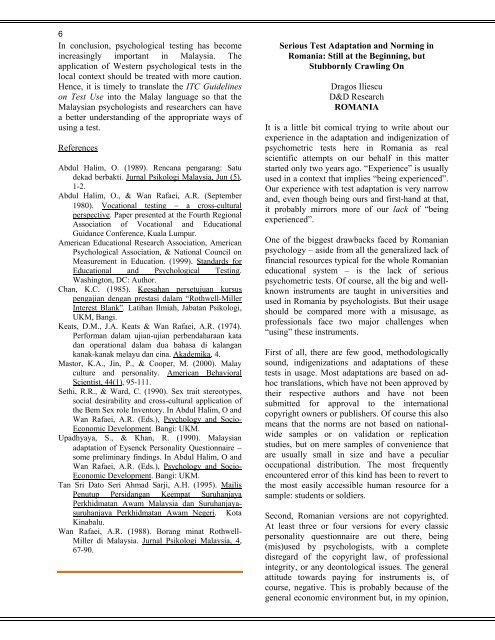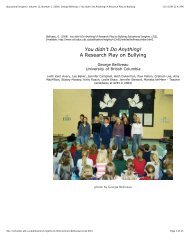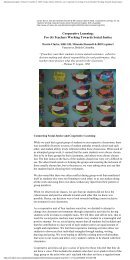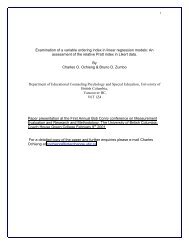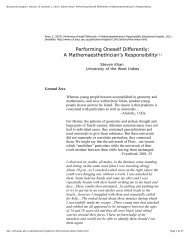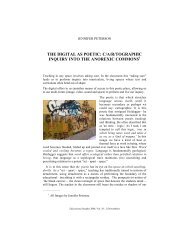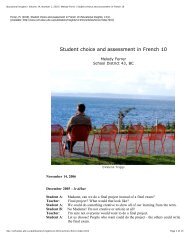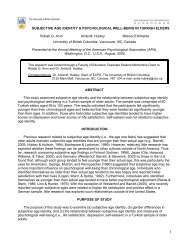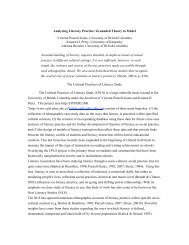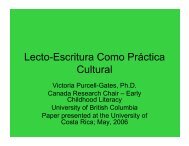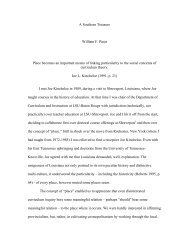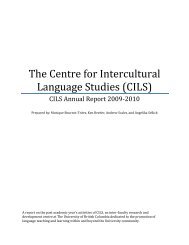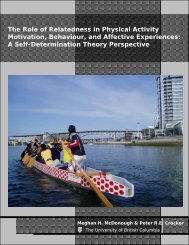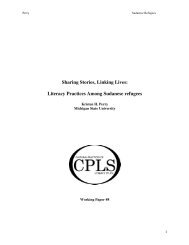TESTING INTERNATIONAL - International Test Commission
TESTING INTERNATIONAL - International Test Commission
TESTING INTERNATIONAL - International Test Commission
Create successful ePaper yourself
Turn your PDF publications into a flip-book with our unique Google optimized e-Paper software.
6<br />
In conclusion, psychological testing has become<br />
increasingly important in Malaysia. The<br />
application of Western psychological tests in the<br />
local context should be treated with more caution.<br />
Hence, it is timely to translate the ITC Guidelines<br />
on <strong>Test</strong> Use into the Malay language so that the<br />
Malaysian psychologists and researchers can have<br />
a better understanding of the appropriate ways of<br />
using a test.<br />
References<br />
Abdul Halim, O. (1989). Rencana pengarang: Satu<br />
dekad berbakti. Jurnal Psikologi Malaysia, Jun (5),<br />
1-2.<br />
Abdul Halim, O., & Wan Rafaei, A.R. (September<br />
1980). Vocational testing − a cross-cultural<br />
perspective. Paper presented at the Fourth Regional<br />
Association of Vocational and Educational<br />
Guidance Conference, Kuala Lumpur.<br />
American Educational Research Association, American<br />
Psychological Association, & National Council on<br />
Measurement in Education. (1999). Standards for<br />
Educational and Psychological <strong>Test</strong>ing.<br />
Washington, DC: Author.<br />
Chan, K.C. (1985). Keesahan persetujuan kursus<br />
pengajian dengan prestasi dalam “Rothwell-Miller<br />
Interest Blank”. Latihan Ilmiah, Jabatan Psikologi,<br />
UKM, Bangi.<br />
Keats, D.M., J.A. Keats & Wan Rafaei, A.R. (1974).<br />
Performan dalam ujian-ujian perbendaharaan kata<br />
dan operational dalam dua bahasa di kalangan<br />
kanak-kanak melayu dan cina. Akademika, 4.<br />
Mastor, K.A., Jin, P., & Cooper, M. (2000). Malay<br />
culture and personality. American Behavioral<br />
Scientist, 44(1), 95-111.<br />
Sethi, R.R., & Ward, C. (1990). Sex trait stereotypes,<br />
social desirability and cross-cultural application of<br />
the Bem Sex role Inventory. In Abdul Halim, O and<br />
Wan Rafaei, A.R. (Eds.), Psychology and Socio-<br />
Economic Development. Bangi: UKM.<br />
Upadhyaya, S., & Khan, R. (1990). Malaysian<br />
adaptation of Eysenck Personality Questionnaire −<br />
some preliminary findings. In Abdul Halim, O and<br />
Wan Rafaei, A.R. (Eds.), Psychology and Socio-<br />
Economic Development. Bangi: UKM.<br />
Tan Sri Dato Seri Ahmad Sarji, A.H. (1995). Majlis<br />
Penutup Persidangan Keempat Suruhanjaya<br />
Perkhidmatan Awam Malaysia dan Suruhanjayasuruhanjaya<br />
Perkhidmatan Awam Negeri. Kota<br />
Kinabalu.<br />
Wan Rafaei, A.R. (1988). Borang minat Rothwell-<br />
Miller di Malaysia. Jurnal Psikologi Malaysia, 4,<br />
67-90.<br />
Serious <strong>Test</strong> Adaptation and Norming in<br />
Romania: Still at the Beginning, but<br />
Stubbornly Crawling On<br />
Dragos Iliescu<br />
D&D Research<br />
ROMANIA<br />
It is a little bit comical trying to write about our<br />
experience in the adaptation and indigenization of<br />
psychometric tests here in Romania as real<br />
scientific attempts on our behalf in this matter<br />
started only two years ago. “Experience” is usually<br />
used in a context that implies “being experienced”.<br />
Our experience with test adaptation is very narrow<br />
and, even though being ours and first-hand at that,<br />
it probably mirrors more of our lack of “being<br />
experienced”.<br />
One of the biggest drawbacks faced by Romanian<br />
psychology – aside from all the generalized lack of<br />
financial resources typical for the whole Romanian<br />
educational system – is the lack of serious<br />
psychometric tests. Of course, all the big and wellknown<br />
instruments are taught in universities and<br />
used in Romania by psychologists. But their usage<br />
should be compared more with a misusage, as<br />
professionals face two major challenges when<br />
“using” these instruments.<br />
First of all, there are few good, methodologically<br />
sound, indigenizations and adaptations of these<br />
tests in usage. Most adaptations are based on adhoc<br />
translations, which have not been approved by<br />
their respective authors and have not been<br />
submitted for approval to the international<br />
copyright owners or publishers. Of course this also<br />
means that the norms are not based on nationalwide<br />
samples or on validation or replication<br />
studies, but on mere samples of convenience that<br />
are usually small in size and have a peculiar<br />
occupational distribution. The most frequently<br />
encountered error of this kind has been to revert to<br />
the most easily accessible human resource for a<br />
sample: students or soldiers.<br />
Second, Romanian versions are not copyrighted.<br />
At least three or four versions for every classic<br />
personality questionnaire are out there, being<br />
(mis)used by psychologists, with a complete<br />
disregard of the copyright law, of professional<br />
integrity, or any deontological issues. The general<br />
attitude towards paying for instruments is, of<br />
course, negative. This is probably because of the<br />
general economic environment but, in my opinion,


